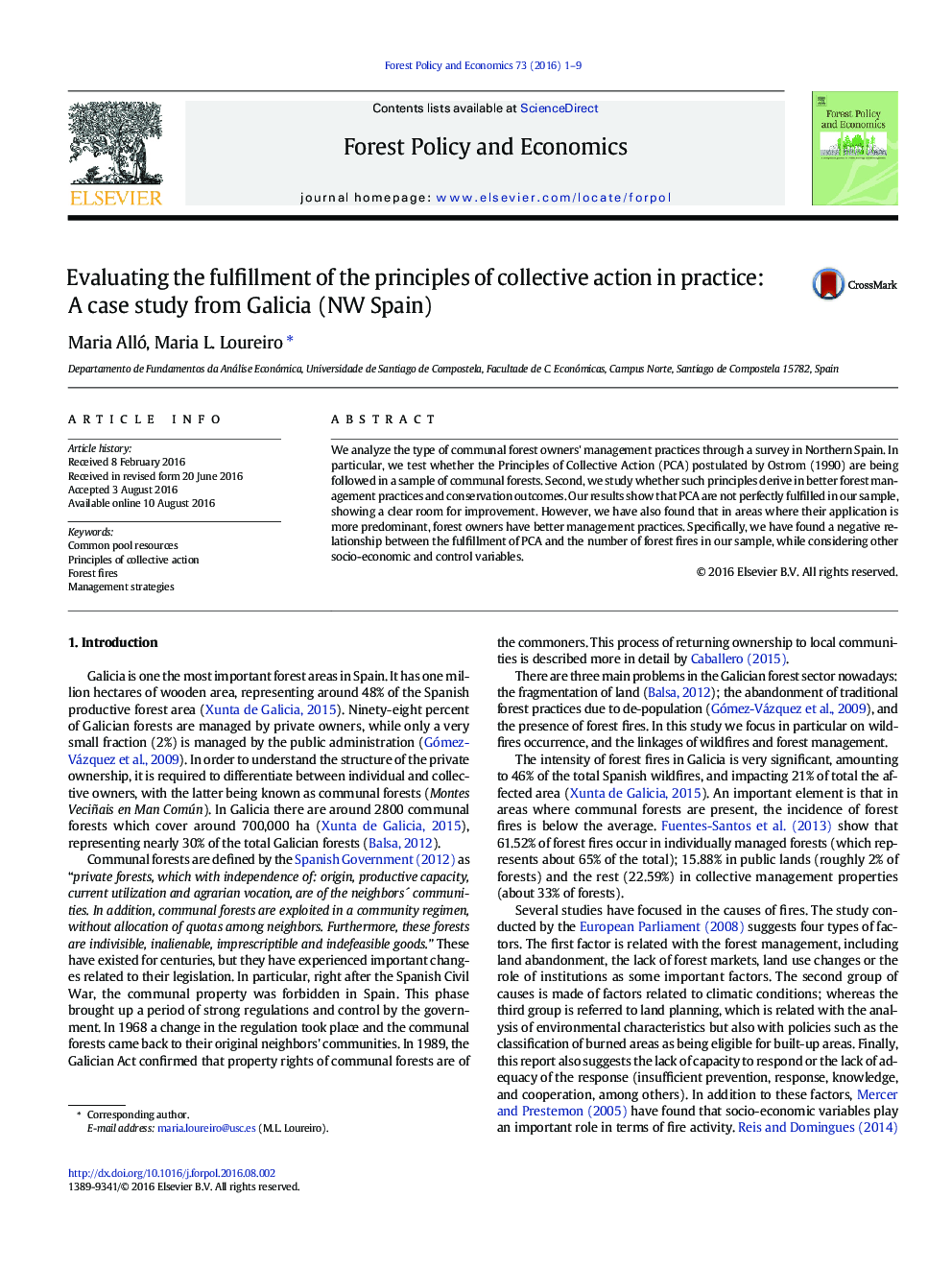| کد مقاله | کد نشریه | سال انتشار | مقاله انگلیسی | نسخه تمام متن |
|---|---|---|---|---|
| 6459806 | 1421666 | 2016 | 9 صفحه PDF | دانلود رایگان |

- Principles of Collective Action (PCA) are tested in a sample of communal forests.
- These principles are not functioning perfectly in practice.
- Their fulfillment implies a negative effect on the number of forest fires.
- PCA are linked with better management strategies.
We analyze the type of communal forest owners' management practices through a survey in Northern Spain. In particular, we test whether the Principles of Collective Action (PCA) postulated by Ostrom (1990) are being followed in a sample of communal forests. Second, we study whether such principles derive in better forest management practices and conservation outcomes. Our results show that PCA are not perfectly fulfilled in our sample, showing a clear room for improvement. However, we have also found that in areas where their application is more predominant, forest owners have better management practices. Specifically, we have found a negative relationship between the fulfillment of PCA and the number of forest fires in our sample, while considering other socio-economic and control variables.
Journal: Forest Policy and Economics - Volume 73, December 2016, Pages 1-9